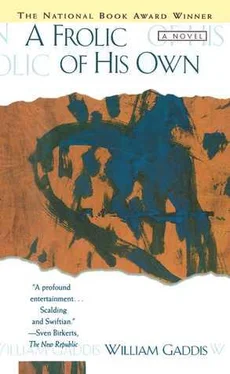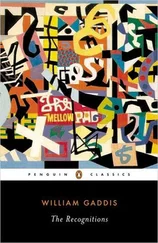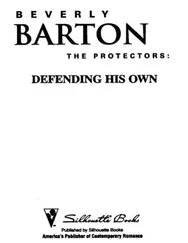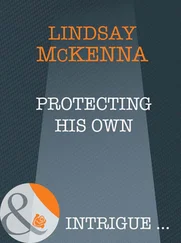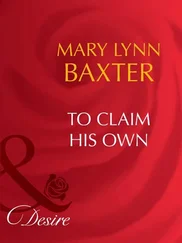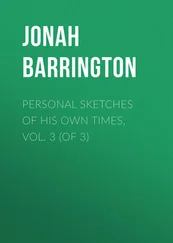Q We are stopping short of response here. I believe you have strayed into Aristotle, and this is not the lecture hall. We are here to talk about your play, whether it's Defendants' 1 or 6, and the way you have seen it purloined or made substantially similar or even debased in the work of another, and on the point of what you like and don't like, what you find actionable or not actionable, I ask you again, do you understand the question?
A Well it's not the same thing, you talk about debasing someone's work with that one short passage from the Republic, if you look at the play, at the whole last act of the play? The scene with Kane in prison condemned to death when Thomas is trying to talk him into saving himself, it's the Crito isn't it? Right out of the Crito? And there's nothing debased about…
Q Did you ever have a discussion with anyone with respect to the subject matter of the lawsuit? MR.BASIE: What does the subject matter mean?
Q Do you understand my question?
A Well I ask the same question, what does subject matter mean?
Q I am not inclined to answer your questions, Mr. Crease. Do you understand my question?
A I wanted a clarification from you.
MR.BASIE: I think we all know that Mr. Crease has not seen the movie.
MR.MADHAR PAI: I don't think that precludes his answering, but if you do, Mr. Basie, then he doesn't know. I'm sure he has been advised what the movie is about. If he hasn't, and you brought a lawsuit…
Q So that before you started the lawsuit, you personally made no investigation of what was actually portrayed in the film itself?
A I read some reviews.
Q Reviews customarily refrain from telling the ending, giving away the story so to speak. Was that the case here?
A I don't know.
Q So accordingly you really have had no way to know whether or not the scene, this last act scene you've just cited, whether it or even some character in your play actually occurs in the film?
MR.BASIE: I don't think you can defend an infringement on the grounds of what was not stolen.
MR.MADHAR PAI: Please don't interrupt. Will you read it back?
(Question is read.) A No.
Q So that all you claim are certain similarities you have come upon at second hand, is that correct?
A That's what I'm talking about. I haven't finished. Q I want you to finish.
MR.BASIE: I am sorry, he can't possibly finish. Not in these time limits.
MR.MADHAR PAI: He will have as much time as he likes.
MR.BASIE: He can answer that question only subject to later supplementation.
MR.MADHAR PAI: Is that because you want to talk to him before he goes on or because there isn't enough time, Mr. Basie?
MR.BASIE: Because there are some similarities here that he is…
MR.MADHAR PAI: Are you testifying, Mr. Basie?
MR.BASIE: You asked me a question. I am giving you the reason.
MR.MADHAR PAI: No, I didn't.
MR.BASIE: You asked me, is that because, and you were looking straight at me.
MR.MADHAR PAI: I meant the question which preceded it. Settle down.
MR.BASIE: Why should I settle down? You look at me and ask a question, when I start to answer you…
MR.MADHAR PAI: Why get excited?
MR.BASIE: It's the truth, though, isn't that exactly what happened?
MR.MADHAR PAI: I did speak to you, the preceding question was to your client.
MR.BASIE: I was objecting to it.
MR.MADHAR PAI: He didn't tell me he didn't have enough time. I thought he was the one under oath here. He said he wasn't finished. Q I said I would like you to finish. Go ahead.
MR.BASIE: I am saying thai he cannot be bound by what he says at this deposition as to the question of similarities between the play and the movie.
MR.MADHAR PAI: What is the reason for that?
MR.BASIE: Because there are so many that it's very easy for him to miss a few. If you are asking him to tell you every similarity that exists. .
MR. MADHAR PAI: I am.
MR.BASIE: I will instruct him not to answer. My objection was simply that I believe you used the word 'claim.'
MR.MADHAR PAI: Your problem was that I stated it in terms of something that had not yet been proven in the case?
MR.BASIE: No, in terms of something that would be his contention, claim.
MR.MADHAR PAI: As opposed to that which is deposited?
MR.BASIE: As opposed to that which merely asks him about what he recalls at present.
Q Would you tell us, then, what…
MR.BASIE: In other words, when you use the word 'claim,' it sounds like an attempt to, or maybe I misinterpreted it as an attempt to limit his further testimony, something which comes later in the litigation.
MR.MADHAR PAI: The record comprehensively reflects our respective positions, in my view. You felt that Mr. Crease should be at liberty until the moment the trial closes to add to his list of similarities, I thought.
MR. BASIE: No, sir.
MR.MADHAR PAI: Then I did misunderstand you.
MR.BASIE: No. There is a later stage. Very often it is pretrial conference.
MR.MADHAR PAI: Up to that point then?
MR.BASIE: Yes.
MR.MADHAR PAI: I respectfully ask that he turn his attention to the task now and do it now, and you said to that, you directed him not to answer.
MR.BASIE: Yes. But only so as not to limit his testimony at the trial to what he…
A This may be a reason to postpone because I am getting tired.
Q We will stop right now. I would just like to know if there are any other forms of damage that you wish to have redressed in this lawsuit that we haven't heard from you about?
A Well it's both things, I tried to explain, on the one hand it's taking the, it's the theft of my play without giving me credit and on the other what offends me is when my work is, when vulgarity and grossness and stupidity debase my work. Q What sum of money do you seek for that? A I'm not, I have to talk to my lawyer about it. I don't think it's something you want me to answer right now.
MR.BASIE: It is stated in the complaint.
MR.MADHAR PAI: There is not a dollar figure stated in the complaint.
MR.BASIE: That's right, because we don't know.
Q Do you have a ñgure in mind of what you want?
A I haven't really thought about it.
Q But you have thought…
A But I could very easily, yes.
Q Would you do it then?
A When the moment comes, yes.
Q This is the moment.
MR.BASIE: No, I don't think so. MR.MADHAR PAI: You don't? MR.BASIE: No. MR.MADHAR PAI: What are we supposed to do, kind of tiptoe over this thing and maybe come to a special spot where we commune under a tree and you tell me about it?
MR.BASIE: For one thing, let me say to you that under the Copyright Act, you can make a choice of remedies after the trial.
MR.MADHAR PAI: Thank you. I would like to know what the witness's number is right now, if he has got one. Q Would you please do that?
MR.BASIE: He said he didn't.
Q I'm asking you if you could do it now, if it's that easy. A I can't.
Q You choose not to do it now? A I choose not to do it now.
Q What are the reasons you choose not to do it now?
A Well it's not, it's very difficult for me to translate offense into money.
Q One last question occurs to me, Mr. Crease. Has it ever occurred to you to change your name?
MR.BASIE: Let me remind him he is still under oath, isn't he?
MR.MADHAR PAI: Of course. MR.BASIE: I direct him not to answer the question.
MR.MADHAR PAI: I think we can call it a day. The witness is released. Thank you, gentlemen.
— Read the Cratylus.
— What's that, old fellow?
— I said read Plato's dialogue Cratylus, arguing whether someone's name is just a convenience or whether it expresses his true nature, if it doesn't it's not a name at all, change it any way you like.
— I'll look it up, by the way old sport I think you've got hold of the wrong end of the stick there with the Sophists. It was Plato who turned the word into a term of opprobrium wasn't it, slandered them the way he does there with Thrasymachus for his own purposes giving Socrates the high moral ground and all the rest of it? Always thought he was a bit of a fascist myself I'd like to chat with you about it some time, might even come out changing your name.
Читать дальше
